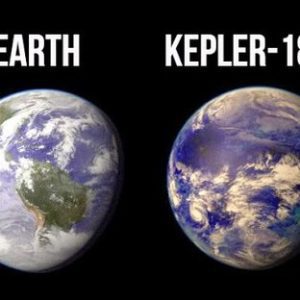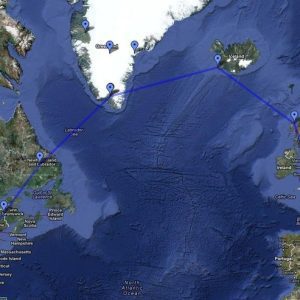Probably none, but there’s one inherent problem that all answers so far seems to miss.
Yes, “civilization” means living in a city. Cities leave traces. We see no such traces until after Göbekli Tepe, some 10,000 years ago. We don’t even see agriculture, which is generally regarded as a necessary precondition for cities, until about that time.
But if a small civilization arose earlier, and then was abandoned for whatever reason, where would it have been?
Almost all ancient cities that we’ve found were built along a river, and more often than not at a river mouth.
Now, look at this map.

This shows what Europe looked like at the height of the last Ice Age, some 25,000 years ago. So, imagine an early civilization arising along the river Po, in present-day Italy. Where would the big cities be?
Well, the sea level was a lot lower back then. Much water was locked up in the ice sheets. Their cities would today be at the bottom of the Adriatic Sea! And we’re not actually looking for anything there; even if we did, and even if we knew where to look with a precision of a few kilometres (which we never will), it’d be nearly impossible to find, covered by 25,000 years of silt.
Same thing if they lived where the Seine, the Loire, and the Rhone entered the North Sea: a city at the bottom of the sea somewhere between Bretagne and Land’s End will be virtually impossible to find.
And “city” would not mean “Paris”, it would be something like the earliest stages of Jericho, where the estimates of population range up to 3,000 people. Sparta at its peak had 20–35,000 inhabitants. We’re talking what we’d call “small town”.
And it’s the same all over the world. Early humans must have lived along the coasts, just like we do today; those coasts are now under water. A lot of water. And silt.
So. There were no civilizations on our level, or even on an Industrial Revolution level, before ours. Of that we can be certain: they would leave traces all over, and would have dug up serious amounts of coal and oil, and there would be dust from metal smelting in deposits, just like we can see when the Romans opened tin mines from the ice cores on Greenland.
But a smaller civilization, like Ur or the Greek city states? Unlikely, but not impossible. We don’t see agriculture, but it would have worked, their fields would likewise be underwater, and it wouldn’t be the first “false start” in history, where something was invented and then abandoned.
If you want it even earlier, your time window covers the last interglacial. That’s potentially even worse. Imagine a civilization arising in present-day Denmark. Look at the map above again. Ice sheet.
And something that’s well known to us living where there used to be ice, is that an ice age glacier flows – and actually removes absolutely everything down to the bedrock. A pre-Ice-Age Copenhagen would have been ground to dust and scattered over thousands of miles in Northern Germany.
So again: unlikely, but not impossible – and if it existed, it is lost forever.
Technically, the only correct answer is “we don’t know”.

An early civilization
There’s a bit of an assumption in most answers here, that civilization necessarily leaves trace for us to find. While this is certainly reasonable for an advanced civilization with widespread masonry and whatnot, it is not necessarily true for a more localized civilization that existed for a few hundred to a few thousand years.
A group of neolithic farmers that formed what might be a few proto-cities, before disappearing due to climate change, isn’t going to leave behind a widespread record for us to find.
Moreover, the place they would most likely settle first are the places that we find early civilizations in. Any artifacts they may have left behind woud likely be built over and over again before recorded history ever began.
The oldest known buildings Tell Qaramel in Syria and Göbekli Tepe in Türkye are both about 9000 years old, they predate the Sumerians by 3000 years. There clearly was something going on in this time period that was more than nomadic hunter-gathering that we simply don’t know much of.
How many more of them are like that? We’re inclined to say none, but the correct answer is we have no evidence of any civilizations prior to 4000 B.C.E. in Mesopotamia, except for a few quite complex buildings in roughly the same area that are several thousand years older. Moreover, 60,000 years ago the map of the world looked like this:

As you can see quite significant bits of what is now shallow ocean were dry land back then. Some of it was under ice sheets, but not everything. Could some areas harbor civilizations that was covered by rising oceans? We have no evidence either way.
A good argument against it is the lack of Homo Sapiens in those regions at the time, but who’s to say Neanderthals were really incapable of forming a civilization and began to form first civilizations before us, only to be savagely destroyed and their initial accomplishments covered by the seas?
There is no evidence of a civilization 100,000–60,000 years ago and no reason to say there was one. However that is different to saying civilization did not exist at all in that time period, or that it couldn’t have existed at all.
It probably didn’t, but we should keep in mind what we know and what we merely infer from the available evidence.






